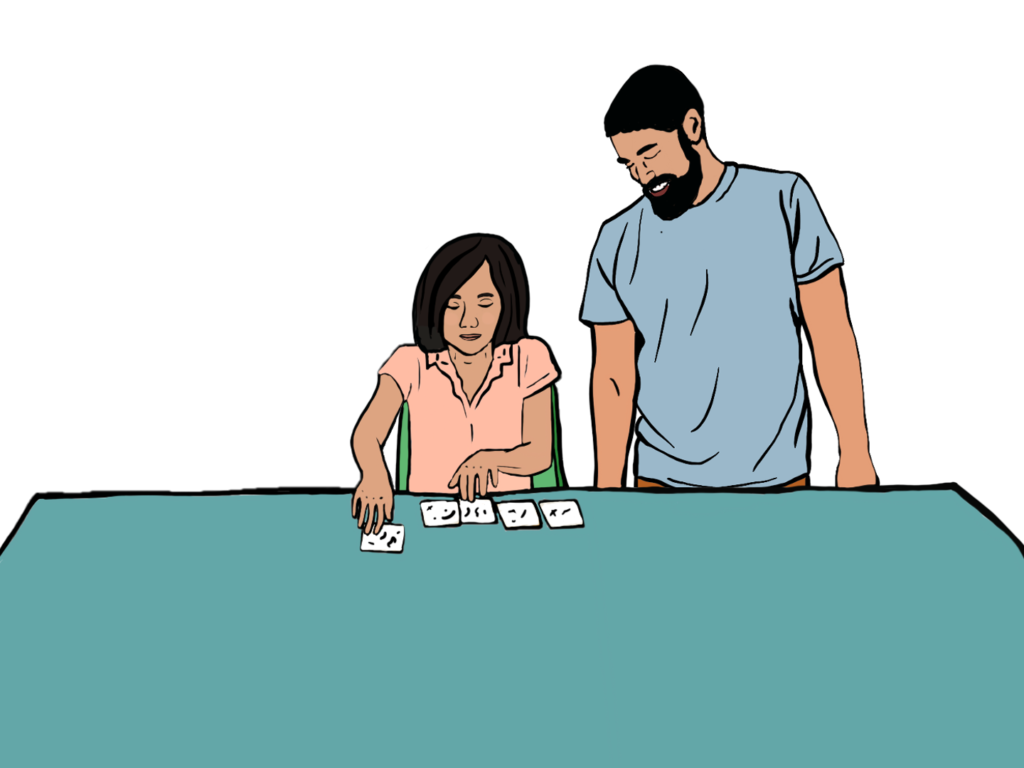
Praising the child’s effort is one of the ways parents and educators can foster young children’s positive sense of self. There are other ways too. We learned earlier about how adults’ beliefs have a powerful impact on how children see themselves. Examining the stereotypes that we all hold is a critical step to supporting children’s developing sense of self.
For example, parental beliefs and home math practices influence how young children think of themselves and math. Research shows that how children think of themselves in relation to math is related to their parent’s attitudes and beliefs about math. Children’s beliefs, in turn, influence their math performance in school. In this way, parental beliefs deeply influence their children’s early school achievement.
In another study, researchers found that girls’ feelings about math are strongly related to how their fathers interact with them around math. When fathers’ talk about and do math with their daughters it nurtures their daughters’ emerging sense of their ability as a math person.
These efforts become possible when we take a step back and think about how cultural messages and stereotypes affect all of us. And then proactively counter them in our words and in our actions.
-
- Academic sense of self
- how a person thinks of themself as a student
- Bias
- the belief that some people or ideas are better than others, usually resulting in unfair treatment
- BIPOC
- Black, Indigenous, people of color
- Conscious
- thoughts or feelings that we are aware of
- Growth mindset
- the belief that, with effort, you can learn and achieve new things.
- In-group preference
- the tendency to form close relationships with others in a person’s same groups
- Self-esteem
- a cluster of characteristics, such as feeling confident, having pride in oneself, and a sense of self-worth
- Sense of self
- how a person thinks and feels about their self
- Stereotype
- a widespread belief that a person must have a trait because they belong to a particular group
- Unconscious
- thoughts or feelings that we are unaware of